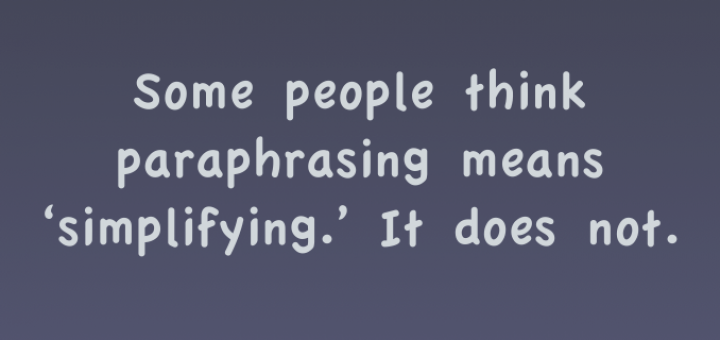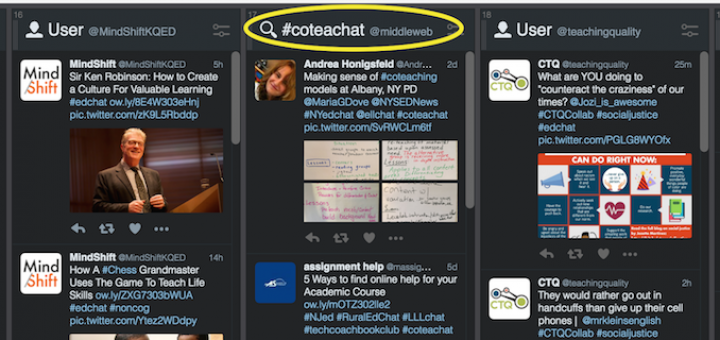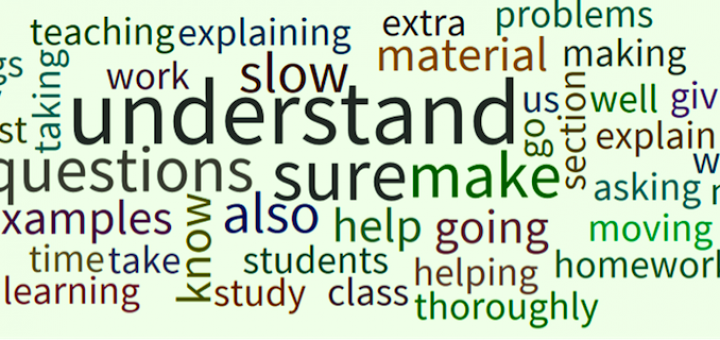Teaching and learning in grades 4-8
What makes an educator a good fit for a school? While knowledge, skills and abilities are essential, candidates also need the right attitudes and dispositions. Rick Jetter’s narrative interview approach can help reveal those aspects, Allison Wilson says.
Teachers beginning to think about how they can bring the world into their classroom will find that Mastering Global Literacy gives them helpful frameworks for understanding why teaching global competence to students is important, says ESL expert Susan Schwartz.
Paraphrasing is the first step on Sarah Tantillo’s “stairway” to deep reading comprehension and needs to be deliberately taught early in the school year. She shares a two-step process that can help students paraphrase strategically and offers a tool for student practice.
The Twitter chat group #coteachat offers co-teachers across the spectrum “topics galore, boundless support, and ongoing learning,” writes founder Elizabeth L. Stein, who has details about how to join the twice-monthly chats and a link to the complete archives.
First day routines evolve over the years, says veteran teacher Cheryl Mizerny, but she has found that addressing 7 questions most students bring to class will help them feel welcome and excited about learning. A student advisory panel supports her observations.
Before planning her first lessons, math teacher Michelle Russell came up with her three teaching goals for the year. Most of all, she wants to strengthen her student relationships and make learning about math more fun. See the survey she did on Day One.
Larry Ferlazzo and Katie Hull-Sypnieski’s guide to implementing the common core with ELLs is a comprehensive “incredibly user-friendly” resource that projects care and respect for teachers, students, and the education profession as a whole, says teacher Rita Platt.
In “The Educator and the Oligarch,” says teacher-reviewer Elisa Waingort, education activist Anthony Cody has written an informative, highly referenced work that traces the relationship of Bill Gates to the gradual privatization of public education in the U.S.
In Relationships That Work, authors Adam Sáenz and Jeremy Dew invite readers to write and reflect about the best ways to work with kids, parents and colleagues to help students learn. Math teacher Anthony Purcell found the counselors’ advice helpful.
It’s the first day of school and your middle level students are acting like, well, adolescents. You’ve got to hook them quick, says teacher Elyse Scott. Forget the pre-tests and paperwork. Jump in and let them know how exciting your classroom universe is going to be.







































